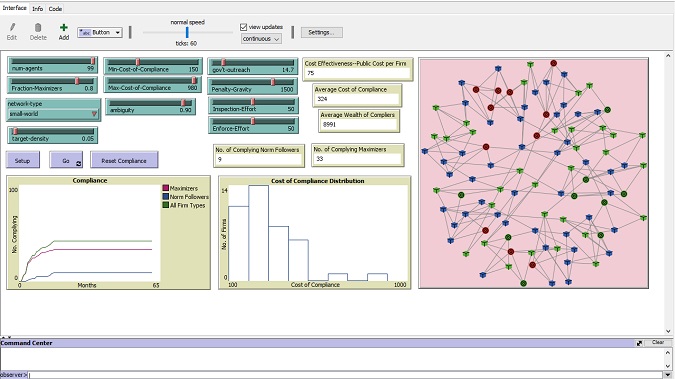Regulation
Failures of the Heart
Does anyone in the Administration actually care about police killings? Or public health? Or future generations?
“I REALLY DON’T CARE DO U?” That slogan embodies much about the Trump Administration. That includes Trump’s response to the death of George Floyd and the ensuing demonstrations. But it includes much else. Including police killings and the coronavirus. “I REALLY DON’T CARE DO U?” is emblazoned on a jacket of Melania Trump’s. She wore …
Continue reading “Failures of the Heart”
CONTINUE READING100 Law Professors Urge EPA to Withdraw Revamped “Transparency in Science” Rule
EPA’s new proposal would go beyond even the far-reaching original to limit agency use of the best science
Today, on behalf of 100 environmental and administrative law professors affiliated with 70 universities in 33 states and the District of Columbia, Sean Hecht and I filed a comment letter urging EPA to withdraw its updated proposal to limit the use of science in agency decisionmaking processes, misleadingly named the “Strengthening Transparency in Science” rule. …
Continue reading “100 Law Professors Urge EPA to Withdraw Revamped “Transparency in Science” Rule”
CONTINUE READINGCoastal Beaches, Public Access & the Pandemic
Important Legal & Policy Considerations in Closing Beaches to Protect Public Health
As part of America’s steadily growing restiveness over state and local shelter-in-place directives, the issue of government-mandated public beach closures has recently emerged as a particularly contentious issue. It’s especially prominent now, given that many coastal states are experiencing their first heat waves of 2020. Many Americans are increasingly weary of and angry over public …
Continue reading “Coastal Beaches, Public Access & the Pandemic”
CONTINUE READINGHere Today, Gone to Maui
U.S. Supreme Court Issues Environment-Friendly Ruling in Major Clean Water Act Case
This week the U.S. Supreme Court issued its decision in the Court’s most important environmental law case of the current Term: County of Maui v. Hawaii Wildlife Fund. In a somewhat surprising ruling, the justices rejected both sides’ argument over the scope of government authority to regulate water pollution discharges under the federal Clean Water …
Continue reading “Here Today, Gone to Maui”
CONTINUE READINGWhat Can We Learn from Modeling a Pandemic?
Individual-based modeling offers untapped opportunities for policymakers and researchers
With the emergence of the corona virus, modeling – the science of representing processes and systems for purpose of analysis—has been at the center of debate how to respond to this public health crisis. Experts and non-experts alike follow the latest modeling predictions, and federal and state public health policies are grounded, at least in …
Continue reading “What Can We Learn from Modeling a Pandemic?”
CONTINUE READINGTrump’s EPA May Cause as Many U.S. Deaths as the Coronavirus
The effects are more gradual, but deregulation could be as deadly as the pandemic.
The Trump Administration has been busy repealing pollution laws that protect public health. The health impact of these rollbacks isn’t as dramatic as an epidemic. There’s a credible argument, however, that it will be just as deadly. In order to put some numbers on the effects of deregulation, we need to make some assumptions on …
Continue reading “Trump’s EPA May Cause as Many U.S. Deaths as the Coronavirus”
CONTINUE READINGStill Not SAFE
The Trump administration moves ahead with plans to roll back Obama-era fuel economy standards.
After months of delay, the Trump administration has reportedly chosen this coming week—in the middle of a nationwide crisis due to the COVID-19 pandemic—to finally release the second part of its two-part rollback of Obama-era automotive fuel economy standards. This isn’t the only environmental rollback action the administration is planning to take during the coming …
Continue reading “Still Not SAFE”
CONTINUE READINGCourt Rejects Trump Administration’s Cap-and-Trade Lawsuit Against California
Federal Government’s Constitutional Challenge to California’s Linked GHG Reduction Plan Fails
Since President Trump took office in early 2017, the State of California has filed over 70 different lawsuits challenging the Trump Administration’s policy initiatives on multiple fronts, including the environment, immigration policy and health care. Over 40 of California’s lawsuits have targeted the Administration’s efforts to roll back longstanding federal environmental protection, natural resource management …
Continue reading “Court Rejects Trump Administration’s Cap-and-Trade Lawsuit Against California”
CONTINUE READINGUnderstanding wastewater utility views on innovation and regulation
by Luke Sherman, Alida Cantor, Anita Milman, and Michael Kiparsky
The same underlying technology has been used in the municipal wastewater sector for 100 years. New technologies that treat effluent more efficiently and effectively exist, yet deployment of those technologies has been slow. The limited adoption of new technologies in the wastewater sector raises questions about how to encourage innovation. Popular narratives around innovation sometimes …
Continue reading “Understanding wastewater utility views on innovation and regulation”
CONTINUE READINGVirus Denial
Yet another effort to ignore reality, from the usual players.
We’ve seen this movie before. Scientists warn of a serious threat. But in Trump World, the problem doesn’t exist. It’s just a product of alarmism. First, climate change. Now, the coronavirus, COVID-19. Trump himself has worked hard to minimize the problem. “We have very few people with it,” he said, and ” people are getting …
Continue reading “Virus Denial”
CONTINUE READING












